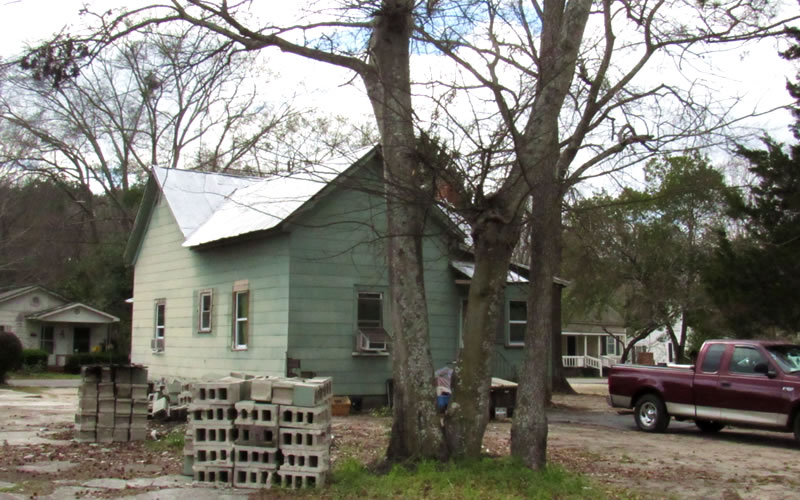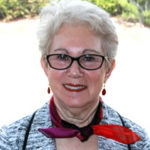
By Carol Hillman, special to Statehouse Report | My husband and I are white. When we moved to South Carolina four years ago, we decided to volunteer as mentors to students in Jasper County, one of the state’s poorest counties.

The county is mostly white, but the public school is 86 percent minority. Many white people send their children to mostly white charter or private schools.
We have attended 58 district basketball games and this black and Hispanic community has adopted us, sharing their dreams for their children to escape poverty.
Mothers work two and three jobs. Families live one paycheck away homelessness. I asked one 5th grade girl, “What makes you special?” Pulling up her sleeve, she showed me her psoriasis and said, “Sometimes we have money for medicine cream.”
Students get good grades, are outstanding athletes and hold after-school jobs. They have dreams like all teenagers, but it is so hard for them.
South Carolina is home to the “Corridor of Shame”, which is the name of a 2007 documentary that shows the terrible conditions of public school buildings and their “minimally adequate” education along Interstate 95. Students in these areas often have trouble doing well on ACTs, SATs, ASVAB and statewide tests.
But our grandchildren, who live in metropolitan areas, attended outstanding public schools and can afford to attend any college that accepts them.
Unfortunately, many colleges don’t recruit from rural schools. It’s easier to go to a metro area and see dozens of good students from competitive schools.
Meanwhile, teachers certified in America often avoid poor districts because of low pay and inadequate housing. Districts are forced to hire teachers from other countries. And this leads to even more problems, such as a student who complained she couldn’t understand her math teacher. When I talked to the teacher, I could not understand him. It wasn’t the math that the student couldn’t understand. It was the teacher’s English.
Many who graduate in Jasper County try to attend a technical college. Too often though, they drop out because their car breaks down or grandma needs someone to care for her or they run out of money. They struggle academically because they aren’t as well prepared as they should be.
Sometimes I ask myself how well I would do if I were a person of color stuck in a poor, rural country. I don’t think I’d do too well.
Most of my neighbors are white and interested in the students we mentor. Some donate money so we can give students new experiences. But most white people have a skewed view of minorities. “Isn’t it dangerous in that school?” or “it’s too bad the kids have to quit school to work in the fields.”
Some of my neighbors want to visit the school. They are surprised that “the kids are so clean.” “Look, they’re holding doors for us.” “They seem really smart. They must live in nice houses.”
The truth is that despite their poverty, they are raised well. They are polite and caring. They know life is hard and just keep moving forward no matter what.
What have these young people done to deserve the treatment they get? They deserve better. Some people say parents are at fault for not valuing education, but what good is education if you can’t get a good job in rural South Carolina?
So why do legislators look for statewide solutions to local problems? Why don’t they ask the people living in those communities what needs to be done?
Why do legislators recommend simple solutions to complex problems? What does a score on a test tell you about how to educate people?
Some white people think minorities would be better off if they would learn to be more like us. But that’s nonsense.
Human beings are pack animals. We hang around with and elect people like ourselves. South Carolina is 66 percent white. Yet most of our elected officials are white; most of our wealthiest citizens are white; most of our state’s CEOs are white; most of our doctors and lawyers are white; most of our teachers are white; most of our justice system is white. Even elected officials who are minorities must attract white voters to keep their seats.
Every wave of immigrants to our country experienced prejudice. Through hard work, education and often “passing” for white, they were able to realize the American Dream, sometimes in one generation.
South Carolina is wasting the contributions that could be made by 30 percent of our people. Those of us lucky enough to be able to “pass” must be willing to share our good fortune. It’s the smart thing to do and it’s the right thing to do. And more than anything, it’s time to move beyond the past.
Carol Hillman of Bluffton is a founder of the S.C. Organization of Rural Schools. Have a comment? Send to: feedback@statehousereport.com.















 We Can Do Better, South Carolina!
We Can Do Better, South Carolina!
Not sure that virtue signaling and screeching White Privilege in a headline is the best way to win folks over to your side.
Carol, great writing, you have captured the essence of the disparity between those who have the “correct” zip code and those that lack advantages. Parents in all areas rural, suburban and urban want the best for their children. Many times rural residents lack the political savvy and confidence to influence decision making. Well stated!
As usual, Carol, well stated and to the point. You have so much goodness to share. Keep sharing the love and concern and thank you for all you do to help the kids you can. As I have mentioned before, an advocate like you in my life as a youth might have changed my life in a big way. I had no idea there were options for me… it is such a feeling of insignificance when you are in poverty. I can tell you this from experience: When mom is working 2 and 3 jobs to make ends meet, the kids are running the household – laundry, cooking, cleaning – who has time for books? Homework was not even on the list of chores – I had to squirrel away under the covers with a flashlight to study after “lights out.” It is a tough life but thanks to your efforts perhaps a light will shine on the path to better future for many other kids. May G-d bless you always!
This is problem all over the rural south , not just South Carolina.
A great statement about the mess in this rebel state, it fought a war to maintain White Privilege. They may not be in the majority, but they lead and run the state. Sad.